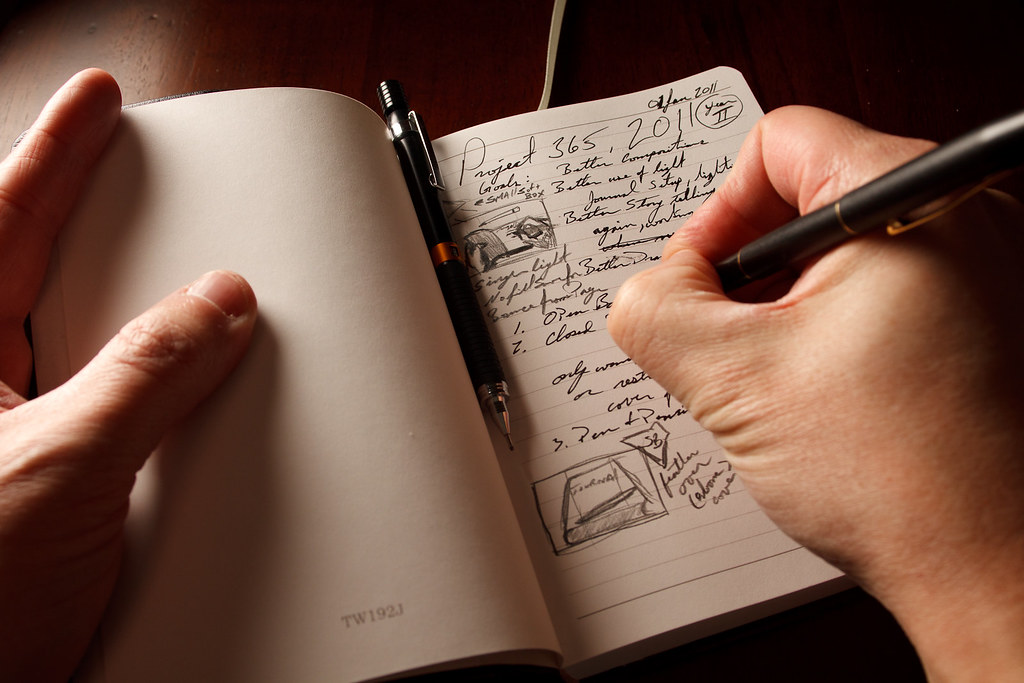 |
| Photo credit: E V Peters on Flickr |
(P.S.: As always, these are suggestions and I'm in no way suggesting it's impossible to plot or pants without them. But establishing these upfront can certainly make the process a little smoother—and easier.)
- The basic premise. What is your book about? What elements does it involve? This is a pretty obvious starting point because it'd be difficult to start plotting or writing a book without a premise in mind. A general idea of the what is important as you get started—even if that what is still pretty vague, it helps to start here so you can flesh that out before you dive in.
- Your characters' goals. Knowing your main characters' goals upfront is absolutely essential to making sure you don't accidentally write a passive character. This means knowing what your character wants to accomplish on page one and what they want to accomplish near the end (because those things can change!). It's okay if your characters' goals evolve throughout the course of the book—the important thing is that you make sure they always have some kind of goal they're striving for—in every single scene. Because if your characters don't have a goal, chances are likely they'll lose their agency because they won't be pushing for anything—instead, the plot will be pushing them around.
- The opposition to your characters' goals. Of course, there's no story if your characters can easily accomplish their goals. Knowing what the opposition is to your characters' goals and what will make it difficult for them to accomplish what they want is important to establish the foundation of the conflict—and conflict, of course, is essential to any story.
- What's at stake? Relatedly, knowing what's at stake is important when considering your characters' goals, because with little at stake, your character isn't risking much, and thus there isn't much making your story compelling. Consider both what's at stake in the macro sense (saving the world) and what's at stake personally for your character (saving their sister, for example). By establishing the stakes early on and making them personal, you'll make it much easier both for yourself while you're writing and your future readers to connect with the protagonist and care about the protagonist's journey.
- The general setting. While you don't have to have every world building element established upfront (I certainly don't), it's always a good idea to have a basic understanding of the setting. Where is your story located? What basics do you know about this setting? The setting is great to keep in mind as you plot or pants especially because it can play a role in the plot if you let it.
Once you've established these five essential elements, you have enough to start considering the story as a whole—whether that means brainstorming and plotting in earnest or jumping into a draft is up to you. All the other details—more information about your cast of characters, narrators, tense, POV, the structure of the story itself—will fall into place as you push yourself to consider the story more deeply. But once you have these five essentials in place, you've got a pretty good foundation to build the rest of the story on.
What else do you consider before plotting (or pantsing) a WIP?
Twitter-sized bites:
Think you might be ready to start plotting but aren't sure? Author @Ava_Jae talks 5 essentials to establish first. (Click to tweet)
Think you might be ready to start pantsing your WIP but aren't sure? @Ava_Jae talks 5 essentials to establish first. (Click to tweet)
No comments:
Post a Comment